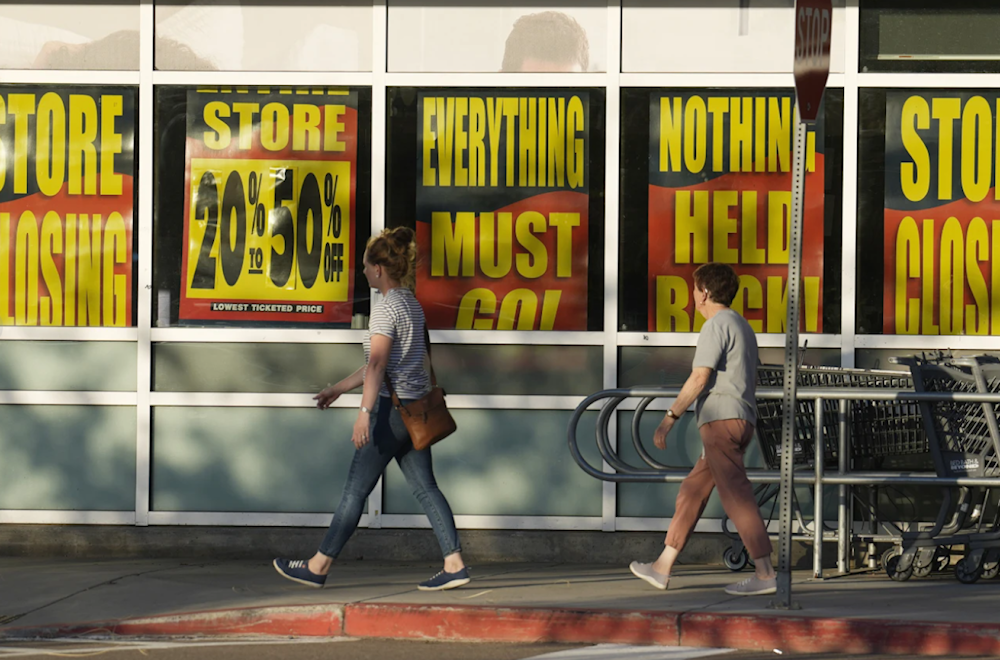US corporate bankruptcies hit 14-year high amid inflation, weak demand
The new record is the result of the global financial crisis as elevated interest rates and weakened consumer demand take their toll on struggling groups.
-

Shoppers enter a Bed Bath and Beyond store on May 29, 2023, in Glendale Colorado, USA. (AP)
Corporate bankruptcies have reached a 14-year-high in the United States as rising interest rates and lackluster consumer demand take their toll on struggling businesses, the Financial Times reported.
According to S&P Global Market Intelligence, at least 686 US corporations filed for bankruptcy in 2024, up approximately 8% from 2023 and more than any year since 2010, when there were 828 filings.
According to Fitch Ratings, out-of-court measures to avoid bankruptcy grew last year, outnumbering bankruptcies by almost two to one.
Consumer demand has weakened as the COVID-19 epidemic stimulus has worn off, wreaking havoc on businesses that rely on discretionary consumer spending.
Gregory Daco, EY-Parthenon's chief economist, explained how "the persistently elevated cost of goods and services is weighing on consumer demands," adding that the load is worse on families from lower economic range, "but even in the middle and on the higher end, you're seeing more caution."
According to Fitch Ratings, out-of-court measures to avoid bankruptcy grew last year, outnumbering bankruptcies by almost two to one. As a result, priority lenders to issuers with at least $100 million in total debt saw the lowest recovery rates since at least 2016.
Last week, the Financial Times reported that global corporate debt sales have surged to an unprecedented $8 trillion this year. This milestone highlights how companies have leveraged strong demand from investors to expedite their borrowing strategies.
According to data from LSEG, corporate bond and leveraged loan issuance grew by over 33% from last year, reaching $7.93 trillion. Major corporations like AbbVie and Home Depot seized the opportunity presented by borrowing costs that hit their lowest levels in decades relative to government bonds. The activity eclipsed previous records set in 2021, with investor enthusiasm driving down borrowing expenses even before central banks started reducing interest rates from their historically high levels.
"Markets are firing on all cylinders, and then some," remarked John McAuley, Citigroup's head of debt capital markets for North America, according to FT. Initially, firms aimed to secure funding ahead of potential volatility tied to the US election, bankers explained. But after the post-election environment saw spreads tighten further following former President Donald Trump's decisive win, many companies chose to secure funding for the upcoming year or even further ahead.
Tammy Serbée, Morgan Stanley's co-head of fixed-income capital markets, observed this shift, stating, "Initially it was just about 'let's de-risk our funding for the year.' Then it was, 'Actually conditions look pretty attractive, why don't we just pull forward 2025 as well?'"

 3 Min Read
3 Min Read










